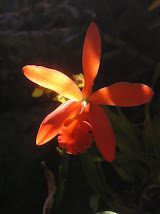 Though geographically Melanesian, Fijian music is more Polynesian in character. Nevertheless, Fijian style fusion Polynesian and Melanesian traditions.
Though geographically Melanesian, Fijian music is more Polynesian in character. Nevertheless, Fijian style fusion Polynesian and Melanesian traditions.Folk music
Folk music is dominated by vocal church songs and dances characterized by rich harmony and complex percussion made from slit drums or natural materials. Like their Polynesian neighbours, Fijians play guitar, ukulele and mandolin along with a variety of indigenous instruments, most commonly lali drums, which are now used to call the people of an area together. Lali drums were an important part of traditional Fijian culture,
 used as a form of communication to announce births, deaths and wars. Meke is a spiritual folk dance where dancers bodies are said to be possessed by spirits. Other percussion instruments include the derua (tubes made of bamboo which are stamped on mats or on the ground). Other dances included the women's dele, which humiliated enemy prisoners sexually, and the men's cibi, which uses spears and clubs.
used as a form of communication to announce births, deaths and wars. Meke is a spiritual folk dance where dancers bodies are said to be possessed by spirits. Other percussion instruments include the derua (tubes made of bamboo which are stamped on mats or on the ground). Other dances included the women's dele, which humiliated enemy prisoners sexually, and the men's cibi, which uses spears and clubs.Indo-Fijian Music
Indian music draws heavily from rural North Indian and some of the Southern states in India. Most popular are Bhajans -a devotional music based accompanied by harmonium and dholak (drums).
 Many Indians now also export bhajan CDs for large Fiji Indian diaspora in Canada, US, Australia and NZ.
Many Indians now also export bhajan CDs for large Fiji Indian diaspora in Canada, US, Australia and NZ.Fijian Pop
In the 80s, Fijian Laisa Vulakoro and Lagani Rabukawaqa became pan-Pacific stars. Vulakoro is well-known for creating vude, a popular style that combines disco, country and island music (especially the meke rhythm) and rock and roll.
Other modern performers include Nuku Katudrau, Karuna Gopalan, Black Rose, Danny Costello, Michelle Rounds, Seru Serevi The Freelancers and Emosi Lomata who is well known across Fiji for his compositions and album releases over 30 years since the age of 11. He recently performing in NZ with his band JES4P's.
Finally, Fiji is especially known for the field of Fijian reggae.





























No comments:
Post a Comment